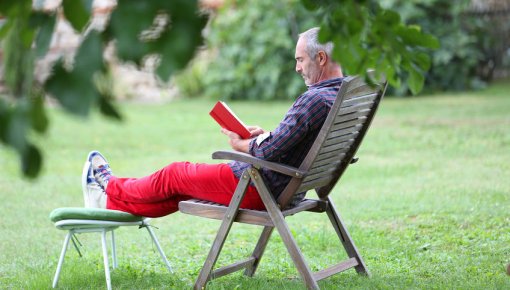I try to be as open as possible about my illness, even though that's still not always easy. At work, for example, I spoke about it a few weeks after the diagnosis. The illness has changed me overall. I'm more open than I used to be.
I think it's important to still enjoy life and remain curious. Also to dare to do new things, try something out that you've always wanted to do, and not hide away. To make a commitment to others, to a hobby, to work – and to stay active. That also takes your mind off the illness!
I want to keep mentally fit. I do a lot of things on the internet. And I also make films. I basically enjoy trying out new things.
Contact with other patients through the support group is very important to me. Speaking to others who have the same problem puts my situation into perspective. I'm now good friends with people from the group. I'm happy if I get an unexpected call from "fellow sufferers" who just want to know how I'm doing. I (and the others) usually feel a little better after having a quick chat.
If I'm alone and feeling down, I sometimes also write short stories. It helps, it distracts me and I usually feel better afterwards. Going to stay at a monastery also helps me. I don't do anything there, I'm just there. I sleep, eat, talk to the people and meditate, which also gives me strength.
Parkinson's is a very unpleasant disease with lots of symptoms. Dealing with the physical and mental symptoms is a new challenge every day. Accepting those challenges can make life richer and more intense. But you have to have a good medication treatment plan (which becomes more important as the illness progresses) and an understanding, but also demanding social network. Carpe Diem!

